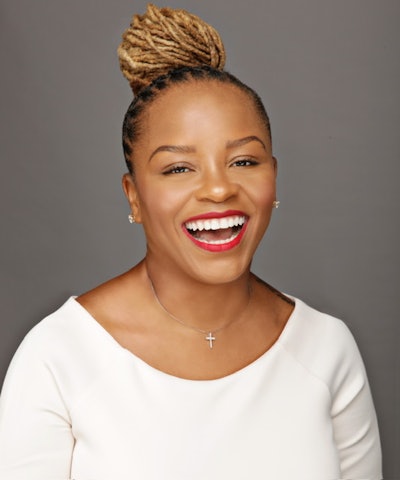Born enslaved, African American abolitionist, orator, writer, and statesman Frederick Douglass was never afforded the privilege of formal education. But if he had been, I like to believe he would have called a historically Black college or university his intellectual home. Much like them, he was powered by the conviction that literacy—secured through self-determination—was a transformative tool in the head, hands, and heart of Black people.
 Dr. Crystal A. deGregor
Dr. Crystal A. deGregor
Nowhere is that contradiction laid bare more than at historically Black colleges and universities. For all of their existence, HBCUs have struggled not for recognition—but for resources. Born not in celebration of liberty, but forged in the fire of freedom betrayed, their survival is a radical declaration: hunger may delay, but it does not deny hope. Although founded in the shadow of slavery and amid the broken promises of Reconstruction’s “moment in the sun,” HBCUs have always been living, breathing testaments of potentiality. Built by and for a people to whom the country owed everything—but who in turn never got much.
And even now—as we approach the 200th anniversary of the founding of Cheyney University of Pennsylvania in 1837—these schools remain storied sanctuaries of survival, assailed by some of politics’ most powerful storms.
Higher education scholars know this struggle all too well—in both dollars and sense. The combined endowments of all HBCUs still don’t rival the single endowment of an institution like Harvard—and several of its Ivy peers. The reasons are many, but none more consequential than the chronic underfunding of public HBCUs by state legislatures, repeated exclusion from targeted federal investments, and a national tendency to undervalue the very institutions that have done the most with the least.
Even the communities these churches of education serve sometimes forget the miracle that they are.
HBCUs remain locked in a relentless negotiation of stretching and shrinking. Still swimming against political riptides. Still pushing forward amid cultural erasure and external (and internal) institutional neglect. Still, somehow, some way—by the faith that Dr. Mary McLeod Bethune, one of fewer than a handful of Black women to found an American college, believed made nothing impossible.
Educating generations of Black brilliance on budgets stretched thinner than the triplicate paper her secretaries used to type her correspondence, Bethune knew how to navigate political mores and survive them. Schoolmasters like her refused to wait on liberty, insisting that Black life was worth educating, protecting, and advancing.
As the nation recently observed this year’s Fourth of July, Bethune-Cookman University, along with others like it, continues to successfully educate more first-generation students, Pell recipients, and Black professionals than our numbers would predict. We produce lawyers, teachers, engineers, nurses, artists, and activists—not just degree-holders, but freedom fighters. Keeping faith in America’s democratic ideals, even when those ideals have not kept faith with us, has not been easy. But Bethune’s legacy—like that of Bethune-Cookman and the other 100+ institutions that carry the federal HBCU designation—proves that it, and we, are worth it.
So, what is the Fourth of July to us?
It is a reminder to still show up, even when structurally starved. Bethune did it. So can—and should—we.
If, like her, in our challenges we find the strength to resist the status quo, then we must model not just making the best of things—but being the best of our ideals. Black excellence will never hang solely on what is done to us, but also on what is done by us.
And for those of us entrusted with carrying that legacy forward—HBCU boards, presidents, cabinets, administrators, faculty, staff, students, and alumni—the work is more urgent than ever. In the face of rising assaults on DEI, book bans, and historical revisionism, HBCUs are, admittedly, like everything else in America: imperfect. But we remain the last best hope for honest education about this country and ourselves.
Not perfect, but principled. Betrayed by some, but beholden to none but the mission.
Dr. Crystal A. deGregor is a historian, writer, and public intellectual specializing in HBCUs and Black women’s leadership. She is the founding director of the Mary McLeod Bethune Institute for the Study of Women and Girls. Her forthcoming book, The Greatest Good: Nashville’s Black Colleges, Their Students, and the Fight for Freedom, Justice, and Equality, is under contract with Vanderbilt University Press.



















